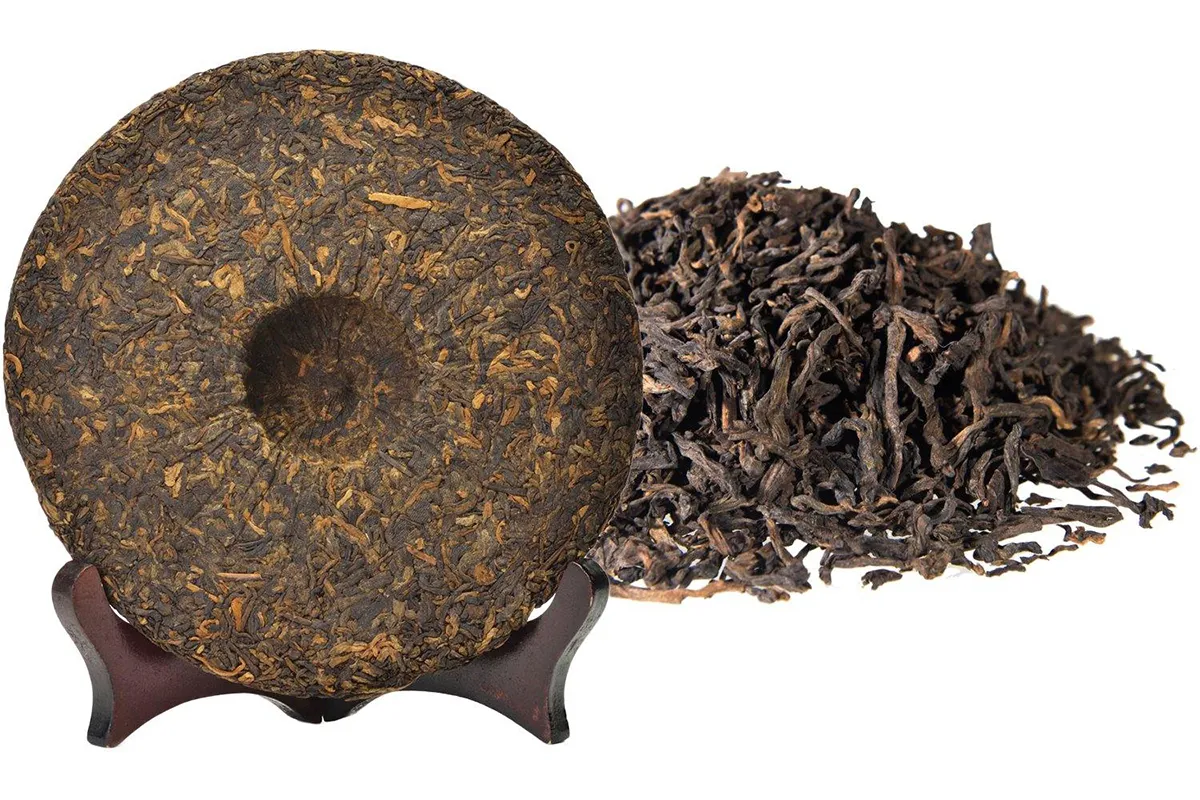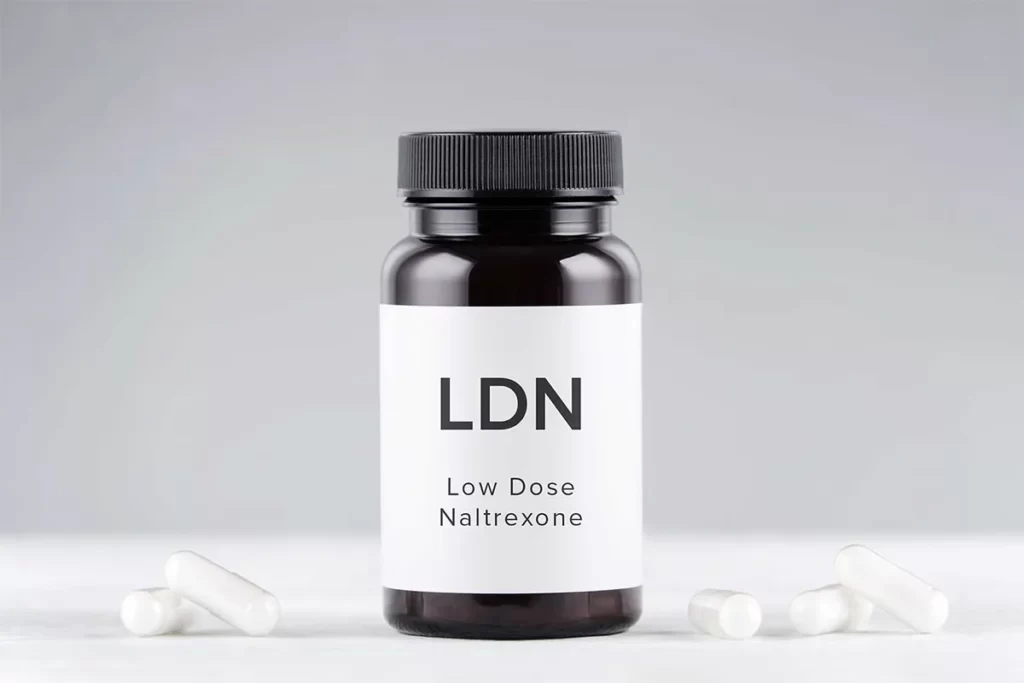Best Chinese Herbs for Weight Loss Safely of Expert Tips
-
 Written by
Michael J. Ormsbee
Written by
Michael J. Ormsbee
- LAST UPDATED September 19, 2023
For thousands of years, traditional Chinese medicine (TCM) has utilized a wide range of Chinese herbs for weight loss and herbal formulas to treat various health conditions and promote wellness. In recent decades, Chinese herbs have become increasingly popular in the West as natural alternatives for weight loss and weight management.
TCM views obesity and being overweight primarily as signs of imbalance within the body. The traditional approach focuses on using Chinese medicinal herbs to restore balance, improve organ function, promote metabolism, and activate energy flow. When combined with healthy lifestyle changes, Chinese herbs for weight loss can be highly effective complements to aid safe, gradual, and sustainable weight loss.
This comprehensive guide will explore the top Chinese medicinal herbs for weight loss, explain how they support weight reduction through different mechanisms, provide tips for using them properly, and outline the TCM approach to long-term weight management.
The Top Chinese Herbs for Weight Loss
TCM utilizes hundreds of medicinal plants, fungi, and minerals in herbal treatments. Various combination formulas are prescribed based on an individual’s specific constitution, root causes of weight gain, and pattern of energy imbalance. Here are some of the most potent Chinese herbs for weight loss for boosting metabolism, burning fat, controlling appetite, detoxing the body, and supporting weight loss through multiple pathways:
Ginseng
One of the most popular Chinese herbs for weight loss, ginseng has been used for thousands of years as a tonic for vitality, energy, and well-being. Several species are used, including Asian ginseng (Panax ginseng), also known as Korean ginseng, and American ginseng (Panax quinquefolius). The active compounds ginsenosides in ginseng have adaptogenic properties that help the body cope with various stresses and balance hormones related to weight gain and appetite. By regulating adrenal hormones, ginseng can reduce cravings for sugar and simple carbs. It also helps stimulate metabolism, burn fat, and maintain healthy blood sugar levels.
Green Tea
Green tea originates from the Camellia sinensis plant, which also gives us black tea, oolong tea, and white tea. Of all the teas, green tea is highest in antioxidants known as EGCG catechins, which boost metabolism and fat burning. Catechins also have an anti-inflammatory effect and help lower cholesterol. Drinking just 2-3 cups of high-quality green tea per day can promote weight loss by increasing calorie expenditure. Green tea extract supplements provide a more concentrated dose of catechins.
Bitter Melon
Bitter melon, also known as bitter gourd (Momordica charantia), is a tropical vine producing bumpy green fruit. Valued in Chinese medicine for weight loss for its blood sugar lowering, antioxidant, and anti-inflammatory effects, bitter melon contains compounds like charantin, polypeptide-P, and vicine that improve glucose control and lipid profiles. This helps prevent fat accumulation and storage, especially around the abdomen and vital organs. Bitter melon also suppresses appetite by slowing down digestion and regulating appetite-modulating hormones.

See Also:
Pu-erh Tea
A type of fermented tea from the Yunnan province of China, pu-erh tea is renowned for its ability to break down stubborn fat and cholesterol deposits. It contains lovastatin-like statins as well as polyphenols and polysaccharides. Animal research shows that pu-erh tea can lower blood fats known as triglycerides while raising good HDL cholesterol. The tea also improves fat burning by increasing the synthesis of bile acids in the liver and enhancing intestinal lipid metabolism.
Rhodiola
Rhodiola (Rhodiola rosea), also known as golden root or arctic root, is an adaptogenic herb used as a calmative in TCM. It was traditionally consumed to endure life at high altitudes and give an energy boost. Rhodiola increases fat breakdown while also suppressing the synthesis and accumulation of lipids in fat cells. A key active constituent called rosavin has demonstrated an anti-obesity effect. Rhodiola makes an excellent addition to herbal formulas for weight loss to promote weight loss and reduce abdominal obesity.
Ginger
The pungent, warming root ginger (Zingiber officinale) stimulates circulation, digestion, and perspiration. It contains gingerols and shogaols which speed up metabolism by increasing thermogenesis. In TCM terms, ginger transforms dampness and phlegm, dries out mucus, and activates yang energy. This helps dissolve fat deposits, especially in the abdomen, and digestion-related weight caused by weak spleen function. Ginger also suppresses appetite by promoting satiety and fullness.
Licorice Root
Licorice root (Glycyrrhiza glabra) has numerous therapeutic properties – it harmonizes the effects of other Chinese herbs for weight loss in formulas, aids digestion, clears heat, and detoxifies the body. Licorice contains triterpenoid saponins called glycyrrhizins which inhibit the enzyme 11β-HSD1 and thereby block the conversion of the inactive hormone cortisone to cortisol. Excess cortisol stimulates visceral fat accumulation. Licorice manages cortisol activity to help control belly fat and weight gain triggered by high-stress levels.
Chinese Hawthorn
Chinese hawthorn (Crataegus pinnatifida), known as shan zha, is a tangy fruit used to treat digestive issues and food stagnation in TCM. It contains chlorogenic acid, rutin, hyperoside, vitexin, and other antioxidants that stimulate bile and lipid secretion to lower cholesterol and triglycerides. The fiber, vitamins, and polyphenols in Chinese hawthorn also help stabilize blood glucose. Removing these metabolic toxins and improving glucose tolerance helps prevent obesity and related complications.
Hoodia
The succulent Hoodia gordonii plant native to South Africa and Namibia was traditionally used by Kalahari bushmen to stave off thirst and hunger during long hunting trips. The steroidal glycoside P57 derived from Hoodia tricks the brain into feeling full by mimicking glucose and altering neurochemicals in the hypothalamus. With calorie restriction being key for weight loss, taking Hoodia as an appetite suppressant can help reduce overall food and portion intake.
Job’s Tears
Also known as Chinese pearl barley, Job’s tears (Coix lacryma-jobi) are used extensively in weight loss formulas in TCM. It is a nutritious gluten-free grain that contains dietary fiber, protein, vitamins, and minerals like iron, phosphorus, and calcium. Job’s tears increase satiety and bowel function to reduce appetite. The coixol, a type of alcohol derived from Job’s tears, inhibits the differentiation and proliferation of adipocytes or fat cells. This limits fat accumulation and lowers body fat percentage.
Raspberry Ketones
Raspberry ketones are aromatic compounds naturally found in raspberries, cranberries, and blackberries. They impart the signature sweet, floral aroma we associate with raspberries. In TCM, raspberry ketones help burn stubborn abdominal and liver fat by stimulating lipolysis – the breakdown of fat. They increase circulating levels of adiponectin – a hormone secreted by fat cells that regulates cholesterol and blood sugar. Ketones also suppress the formation of new fat cells by limiting differentiation and proliferation of pre-adipocytes.
Lotus Leaf
Derived from the aquatic perennial Nelumbo nucifera, lotus leaf tea, and extracts are used in China to manage weight and cholesterol. Key active constituents like nuciferine, neferine, and roemerine improve lipid metabolism in the liver and intestines to reduce fat absorption. Lotus leaf extracts lower cholesterol, triglycerides, and LDL while elevating HDL or “good” cholesterol. The tea is also a diuretic to help relieve water retention and bloating linked to belly fat accumulation.
This covers some of the major Chinese medicinal herbs for weight loss that accelerate weight loss through multiple mechanisms – antioxidant effects, improving glucose and lipid parameters, balancing hormones, suppressing appetite, stimulating metabolism and thermogenesis, preventing fat cell proliferation, promoting lipid breakdown and excretion, etc. They are often used synergistically in tailored combinations.
How Chinese Herbs for Weight Loss Support Weight Loss
Obesity and being overweight were not common health concerns in ancient China. Hence traditional herbal formulas focused more on deficiency patterns characterized by lack of qi, blood, yin, or yang rather than excess weight issues. However, TCM recognizes obesity as a complex, multifactorial condition that involves hormonal, metabolic, and psychosocial factors.
Chinese herbs for weight loss aid healthy, gradual weight loss in several ways:

Increasing Metabolism and Fat-Burning
One of the core weight loss mechanisms of Chinese herbs for weight loss like green tea, ginseng, ginger, Rhodiola, and raspberry ketones is increasing metabolism and fat burning through:
- Thermogenesis – generating heat by burning calories to raise body temperature
- Lipolysis – breaking down triglycerides into free fatty acids and glycerol
- Fat oxidation – using lipids as fuel for energy production
This leads to greater calorie expenditure and prevents fat accumulation. Adaptogenic herbs counter the drop in metabolism often caused by dieting and calorie restriction.
Regulating Hormones Related to Weight Gain
Hormone imbalances can lead to unintended weight gain and inability to lose weight. Key hormones impacted include:
- Insulin – regulates blood sugar. Excess promotes fat storage.
- Cortisol – released during stress. Can increase belly fat.
- Estrogen – female sex hormone. Excess fuels fat gain.
- Leptin – decreases appetite. Resistance causes overeating.
- Neuropeptide Y – increases appetite and fat production.
Herbs like ginseng, green tea, and licorice root help regulate these hormones for healthy weight management.
Improving Digestion and Reducing Bloating
Poor digestion can cause weight gain in multiple ways – reduced nutrient absorption, imbalanced gut flora, intestinal inflammation, constipation leading to toxin overload, fluid accumulation, etc.
Chinese herbs for weight loss like ginger, Job’s tears, rhubarb root, and dried tangerine peel improve gastrointestinal function. Bitters like hawthorn stimulate bile flow to aid fat digestion. Anti-inflammatory and antimicrobial herbs prevent gut inflammation and dysbiosis. This healthy digestion reduces abdominal distension and water retention.
Controlling Blood Sugar and Cholesterol
Unmanaged blood sugar and high cholesterol prompt fat accumulation in the abdomen and organs. Chinese herbs for weight loss like ginseng, bitter melon, fenugreek, and pu-erh tea improve glucose tolerance while hawthorn, lotus leaf, and green tea lower LDL and triglycerides. This prevents obesity-related complications like metabolic syndrome.
Suppressing Appetite
By naturally controlling appetite and hunger signals, Chinese herbs for weight loss like hoodia, Job’s tears, and seaweed reduce overall calorie intake to create a calorie deficit needed for weight loss. Adaptogens also curb cravings for sweets and carbs by stabilizing blood sugar.
Reducing Stress
Excess stress stimulates the production of cortisol, which deposits fat around the abdomen. Adaptogens like ginseng, licorice root, and Rhodiola help moderate cortisol activity. Calming nervines like chamomile, passionflower, and lemon balm reduce anxiety and stress-related overeating.
Detoxifying the Body
Toxins and metabolic waste accumulate in fat tissue. Chinese herbs for weight loss like dandelion, artichoke, and green tea increase the excretion of toxins through urine, bile, and stool to reduce toxin overload. Burdock root, turmeric, and Oregon grape purify the liver and bloodstream to eliminate obesity-causing impurities.
Boosting Energy and Exercise Capacity
Obesity can create a cycle of fatigue, low motivation, and inability to exercise sufficiently. Herbal tonics like ginseng, gynostemma, and cordyceps increase physical endurance, stamina, and strength-building ability to facilitate more active lifestyles.
This broad range of mechanisms makes Chinese herbs for weight loss valuable adjuncts to lifestyle measures for safe, progressive weight loss.
TCM 8 Tips for Using Chinese Herbs for Weight Loss
To maximize their benefits, TCM offers some guidelines on using Chinese herbs for weight loss properly:
Get a personalized herbal formula: Since everybody is different, get a formula tailored to your specific constitution, pattern of imbalance, and root causes of weight gain.
Follow a healthy diet: Herbs work best alongside a meal plan high in whole foods and low in processed carbs, sugars, and fats. Avoid overeating.
Exercise regularly: Movement is essential to raise energy expenditure and reduce fat storage. Chinese herbs for weight loss can boost fitness capacity.
Reduce stress: High stress exacerbates hormonal imbalances that promote weight gain. Follow stress management techniques.
Correct accompanying issues: Address other health problems like inflammation, insomnia, slow metabolism, and fluid retention that prevent weight loss.
Be patient and persistent: It takes time to reverse obesity safely and sustainably. Stick to Chinese herbal regimens for weight loss for optimal results.
Watch for side effects: Some Chinese herbs for weight loss may cause reactions like insomnia, anxiety, and stomach upset. Adjust dosages accordingly.
Avoid contraindications: Don’t take sedating herbs before driving. Avoid stimulating herbs at bedtime.
Following professional guidance for appropriate herb selection, optimal dosage, and duration of use is advised for effective, risk-free weight management.

The TCM Approach to Chinese Herbs for Weight Loss
Traditional Chinese medicine takes a holistic approach to healthy weight loss and maintenance by:
Focusing on Internal Balance and Harmony
TCM views obesity as a sign of an imbalance between yin and yang energies in the body. The goal is to restore optimal functioning of organs and systems using complementary nutrition, Chinese herbs for weight loss, acupuncture, exercise, and meditation. This creates harmonious equilibrium at both physical and emotional levels.
Addressing Root Causes of Weight Gain
In TCM, patterns like qi and yang deficiency, spleen dampness, liver qi stagnation, phlegm-damp obstruction, and blood stasis can manifest as weight gain. Chinese herbal formulas for weight loss aim to resolve these root imbalances rather than just reducing calories. This creates sustainable outcomes.
Regulating Appetite and Digestion
A healthy digestive system ensures proper nutrient assimilation and appetite control. Chinese herbs for weight loss that strengthen the stomach, spleen, and liver regulate hunger cues, portion sizes, and cravings. This prevents overeating.
Balancing Hormones and Neurotransmitters
Hormonal problems like insulin resistance, leptin signaling errors, cortisol dysregulation, and reduced dopamine activity can trigger overeating. Chinese herbs for weight loss help optimize these hormones and maintain stable moods to prevent stress or emotional eating.
Improving Metabolic Function
Boosting fat-burning pathways and enhancing liver, thyroid, and kidney function speeds up metabolism. This increases nutrient utilization and calorie expenditure for effective fat loss.
Activating Energy Flow
Stagnant qi or energy blockages slow down metabolism. Herbs promote circulation and movement of nutrients, oxygen, and waste products to fuel bodily processes. Exercise further boosts energy flow.
Making Gradual Lifestyle Changes
TCM emphasizes incremental shifts in diet, daily routine, habits, emotional patterns, and environments to engrain healthy sustainable behaviors. Quick fixes lead to rebound weight gain. Small consistent changes add up to lifelong results.
Incorporating Mind-Body Practices
Meditation, yoga, tai chi, and qigong help center the mind, reduce stress, release emotional blockages, and connect with the body. This boosts metabolism, circulation, muscular function, and calorie burn.
A holistic TCM approach ensures that weight loss occurs at deeper energetic levels leading to lasting balance at optimal healthy weights.
Conclusion on Chinese Herbs for Weight Loss
In summary, traditional Chinese medicine offers a diverse toolbox of potent herbs and herbal formulas to aid weight loss and counter obesity. Chinese medicinal herbs for weight loss complement diet, exercise, and lifestyle modifications to promote effective fat loss through increased calorie burn, improved hormone balance, reduced appetite and cravings, detoxification, enhanced digestive function, and higher energy levels.
When prescribed by a trained TCM practitioner based on an individual’s constitution and imbalance patterns, Chinese herbs for weight loss provide safe, gradual, long-term solutions for weight management. Following professional protocols and incorporating TCM’s holistic wellness principles can help restore harmony within bodily systems and energetic rhythms for optimal vitality at healthy weights.
Further clinical research to better understand the weight loss mechanisms of Chinese medicinal herbs, their synergistic actions in formulas, safe dosages, potential side effects, and efficacy in different populations can help integrate them into mainstream practice. An integrative approach combining traditional wisdom and modern science can help tackle the growing epidemic of obesity worldwide.
FAQs about Chinese Herbs for Weight Loss

What Chinese herb is good for weight loss?
Some of the most effective Chinese herbs for weight loss include ginseng, green tea, pu-erh tea, ginger, and Rhodiola rosea. Ginseng helps balance hormones like insulin and cortisol to reduce fat storage and cravings. Green tea contains antioxidants like EGCG that boost metabolism and fat burning. Pu-erh tea improves lipid metabolism to break down fat. Ginger speeds up thermogenesis and helps dissolve stubborn fat deposits. Rhodiola increases fat breakdown while limiting lipid accumulation. Other potent Chinese herbs for weight loss are rhubarb root, bitter melon, licorice, and lotus leaf. They work through multiple mechanisms - suppressing appetite, enhancing digestion, detoxing the body, controlling blood sugar, increasing calorie burn, and preventing new fat cell formation. However, it's best to get a customized herbal formula from a TCM practitioner based on your body type and causes of weight gain.
What Chinese herbs are good for belly fat?
Some top Chinese medicinal herbs for reducing belly fat include ginseng, green tea, ginger, dandelion root, pu-erh tea, and rhubarb root. Ginseng helps modulate cortisol production - excess cortisol can lead to fat accumulation around the abdomen. The catechins in green tea boost lipolysis - the breakdown of fat - to specifically target abdominal fat. Ginger energizes yang and dispels dampness to dissolve stubborn fat deposits around the belly. Dandelion root is a natural diuretic that reduces bloating and water retention to slim the waistline. The polysaccharides in pu-erh tea enhance intestinal lipid metabolism to reduce visceral fat. Rhubarb root improves digestion and detoxification, which decreases abdominal bloating and fat mass. Other herbs that control appetite, lower blood sugar, increase calorie burn, reduce inflammation, and improve lipid profiles can all help to diminish stubborn belly fat.
What is the strongest herb for weight loss?
Some of the most potent Chinese herbs for substantial weight loss include ephedra, bitter orange, country mallow, cassia seed, and rhubarb root. However, these herbs can have more adverse reactions and need expert guidance. Ephedra contains ephedrine alkaloids that act as powerful thermogenic agents to dramatically increase metabolism and fat burning. Bitter orange contains synephrine that suppresses appetite and also burns calories. Country mallow reduces fat absorption from the gut. Cassia seed and rhubarb root are strong natural laxatives that promote weight loss through elimination. Other powerful but safer weight-loss herbs are green tea, pu-erh tea, ginseng, ginger, and bitter melon. Though less dramatic, they provide more sustainable, holistic weight reduction without severe side effects when used properly.
What herbs stimulate weight loss?
Some of the top herbs that stimulate weight loss include green tea, ginseng, turmeric, cayenne, garcinia cambogia, fenugreek, dandelion, aloe vera, apple cider vinegar, cinnamon, fennel seeds, parsley, lemon and peppermint. Green tea contains EGCG catechins that boost metabolism and fat burning. Ginseng helps regulate weight-controlling hormones like insulin, cortisol, and leptin. Turmeric improves glucose tolerance and lowers LDL cholesterol. Cayenne and garcinia cambogia suppress appetite and block fat production. Fenugreek moderates glucose absorption while dandelion is a natural diuretic. Aloe vera and apple cider vinegar improve digestion and metabolism. Cinnamon balances blood sugar levels while fennel seeds, parsley, lemon, and peppermint promote satiety. Using a combination of these stimulant herbs can accelerate healthy weight loss through a variety of mechanisms.
How Do Chinese Herbs Support Weight Loss?
Chinese herbs promote weight loss in several ways:
- They increase metabolism and fat burning through thermogenesis, lipolysis, and fat oxidization. Herbs like ginseng, green tea, and ginger can increase calorie expenditure.
- They help regulate hormones related to weight gain like insulin, cortisol, estrogen, leptin, and neuropeptide Y. Herbs support hormone balance.
- They improve digestion by strengthening the stomach, spleen, and liver. Healthy digestion prevents weight gain.
- They control blood sugar and cholesterol levels. Herbs like ginseng, fenugreek, and green tea support glucose management.
- They suppress appetite and reduce cravings through mechanisms like slowing digestion.
- They help moderate cortisol levels and decrease stress-related weight gain.
- They detoxify the body by eliminating obesity-causing toxins. Herbs cleanse the blood and liver.
- They provide an energy boost to increase physical activity and exercise capacity.
So through antioxidant effects, blood sugar control, improved lipid profiles, appetite suppression, hormone regulation, reduced inflammation, and thermogenesis, Chinese herbs can support healthy, gradual weight loss.
Is There a Chinese Herbal Tea for Weight Loss?
Yes, some of the most effective Chinese herbal teas for weight loss include green tea, oolong tea, pu-erh tea, ginger tea, ginseng tea, and licorice root tea.
Green tea is renowned for its fat-burning catechins that boost metabolism. Oolong tea helps burn visceral fat by improving lipid metabolism. Fermented pu-erh tea has antimicrobial and cholesterol-lowering effects that support weight loss.
Ginger tea enhances thermogenesis, suppresses appetite, and dissolves stubborn fat. Ginseng tea balances hormones like insulin and leptin to reduce fat storage. Licorice tea moderates cortisol levels to control stress-related weight gain.
These Chinese teas for weight loss provide a combination of active compounds, antioxidants, vitamins, and minerals that can increase energy expenditure, regulate appetite, stabilize blood sugar, lower cholesterol, and burn stubborn body fat.
Drinking 2-3 cups of these teas daily, along with following a healthy diet and active lifestyle, can help accelerate fat loss, especially around the abdomen. High-quality loose-leaf herbal teas tend to be more potent than bagged teas.
Do Chinese Herbal Slimming Patches Work?
Chinese herbal slimming patches claim to promote weight loss by transdermally delivering active ingredients from botanicals into the body. Some common ingredients in these patches include raspberry ketones, hoodia gordonii, garcinia cambogia, white kidney bean, bitter orange, and Chinese folk herbs.
However, there is limited clinical evidence on the efficacy and safety of these slimming patches for weight loss. Since the exact herbal formulations are rarely disclosed and the quality control is uncertain, the benefits are questionable. Critics argue the amount of herbs that can permeate the skin is too low to have any significant effects.
Nevertheless, some people do report modest weight loss from using reputable brands of slimming patches, especially when combined with diet and exercise. So slimming patches may provide supplemental support, but are unlikely to produce dramatic weight loss on their own. Consulting a TCM practitioner is recommended for proven herbal therapies.
What is the TCM Approach to Healthy Weight Loss?
The TCM approach to weight loss focuses on restoring balance within the body rather than just reducing calories. It involves:
- Identifying and treating the root imbalances causing weight gain using herbs, acupuncture, cupping, massage, etc.
- Strengthening vital organs like the spleen, liver, kidneys, and lungs with herbal formulas.
- Improving metabolic function through better circulation and elimination of waste products.
- Regulating appetite, digestion, and hormones governing weight.
- Modifying the diet to be more nutritious and portion-controlled.
- Increasing movement through qigong, tai chi, or yoga to boost metabolism.
- Reducing stress and cultivating mindfulness for better sleep and appetite control.
- Making gradual, sustainable lifestyle changes rather than quick fixes.
- Using complementary therapies like meditation, acupressure, and moxibustion along with herbs.
The holistic TCM approach aims to create optimal energetic balance and vitality leading to healthy long-term weight.






